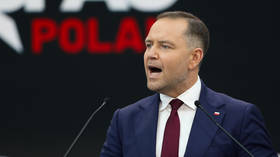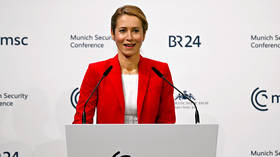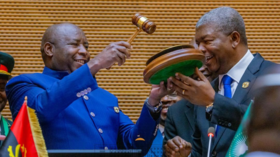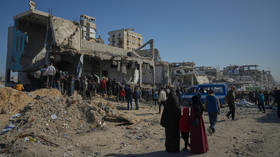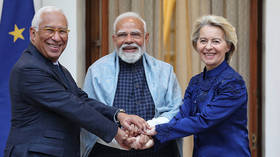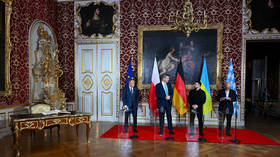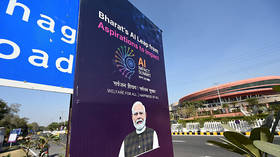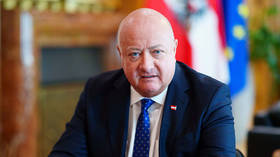Soviet prisoner murders by Nazis still unacknowledged – German president
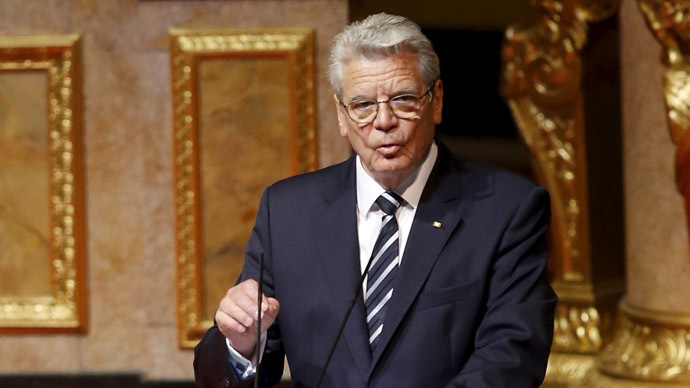
Mass murders of Soviet prisoners at the hands of the Nazis in Germany during WWII haven’t been taken into account, said German President Joachim Gauck, praising Soviet Army troops, who are owed “gratitude and respect”.
About five and a half million Soviet soldiers were held by the Nazis, less than half of whom survived, Gauck said in the interview to the daily Sueddeutsche Zeitung.
“We’ve truly done a lot in coming to terms with our Nazi past. But [there] are some victims that haven't been taken into account at all or sufficiently – such as the Soviet prisoners of war.”
According to Gauck, these Soviet people are in an “oblivion zone” when it comes to collective memory, and this is unfair.
Gauck has praised Soviet Army soldiers who played their part in ending the WWII.
“On May 8 we were liberated – not only [by], but also through, the people of the Soviet Union. Therefore we owe them gratitude and respect,” Gauck said. However, he added that after 1945, Soviet liberators stayed in their country and were responsible for “bondage, repression and persecution in the east of Germany.”
Germany should consider paying WWII reparations to Greece – Gauck
In the interview the German President also said he understands Athens’ calls for WWII reparations, saying that Berlin should examine its historical responsibility to Greece.
“We are not only people who are living in this day and age but we’re also the descendants of those who left behind a trail of destruction in Europe during World War Two – in Greece, among other places, where we shamefully knew little about it for so long.”
According to Gauck, it's the right thing to do “for a history-conscious country like ours to consider what possibilities there might be for reparations.”
Many Greeks blame Germany, as the country's biggest creditor, for the tough austerity measures and record high unemployment it has faced after getting two international bailouts total worth €240 billion.
In April Athens ruled that Germany owes Greece no less than €278.7 billion in World War II reparations.
Berlin earlier flatly denied it owes Athens any more money, saying it already paid Greece war damages of $25 million in the 1950s, equivalent to $220 million today, and also paid out 115 million Deutschmarks (a sum worth around $230 million today), to victims of Nazi crimes in the early 1960s.
After Nazi forces took control of Greece in 1941, the stage was set for one of the bloodiest confrontations of World War II as Greek resistance fighters put up a fierce struggle to end the occupation. They were powerless, however, to prevent the Third Reich from extracting an interest-free 476 million Reichsmarks loan from the Greek central bank, which devastated the Greek economy.
‘Germans have a special responsibility to be aware of what we did during the Nazi era’ – Merkel
Gauck’s words were echoed by Chancellor Angela Merkel, who also said that Germany should not forget its Nazi past and try to be sensitive to those nations that were affected in the World War II.
“There's no drawing a line under the history,” Merkel said. “We can see that in the Greece debate and in other European countries. We Germans have a special responsibility to be alert, sensitive and aware of what we did during the Nazi era and about lasting damage caused in other countries. I've got tremendous sympathy for that.”
Merkel said that she was looking forward her May 10 meeting with Russian President Vladimir Putin.
“To date, there is huge controversy between Russia and us [Germany], including the issue of what is happening in Ukraine. However, it is important to me to jointly lay wreaths on the Tomb of the Unknown Soldier on May 10 with the Russian President,” she said.
Chancellor Merkel, as well as other leaders including US Barack Obama and UK David Cameron, will not attend the May 9 celebrations in Moscow amid tensions with Ukraine.


